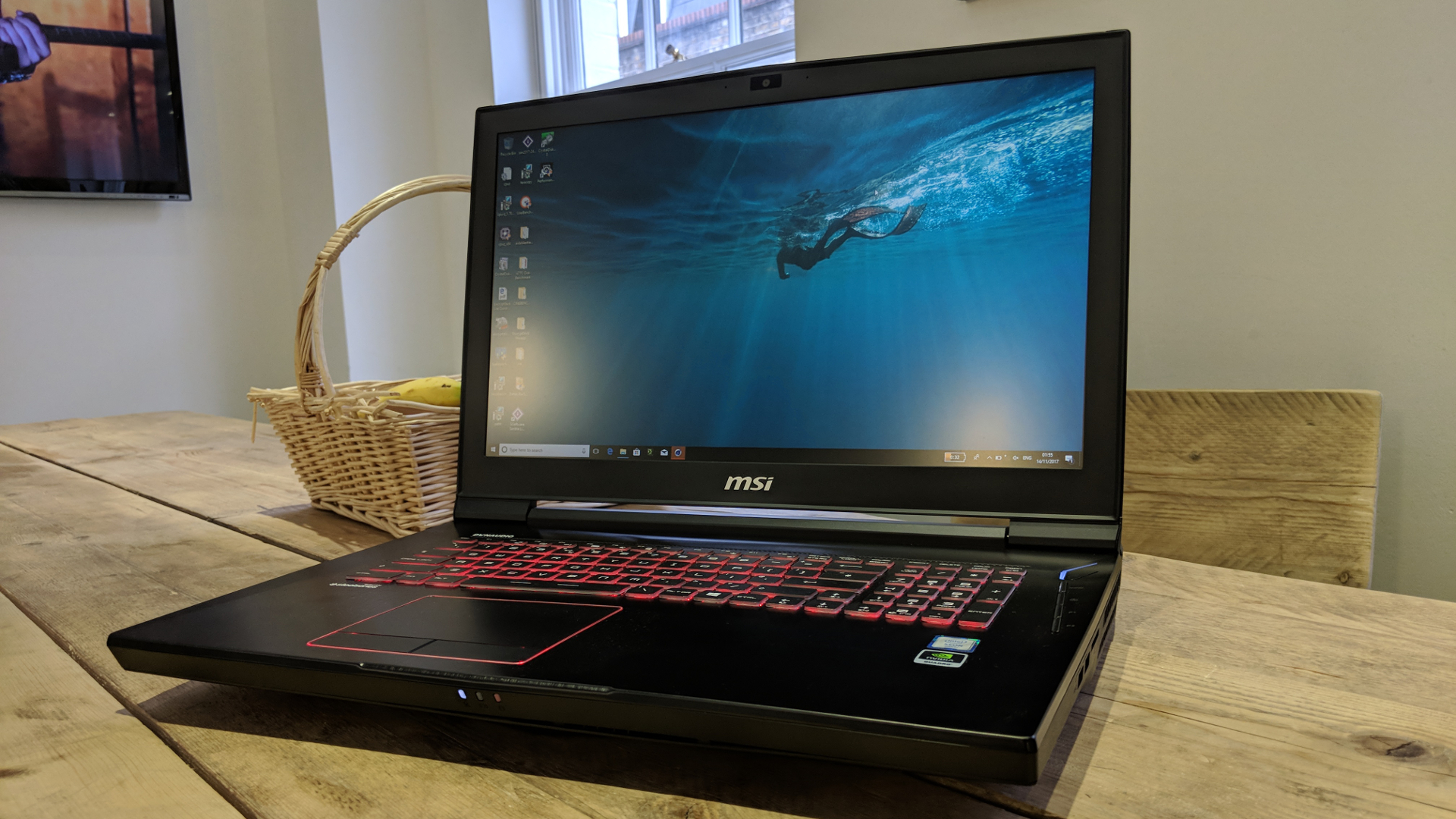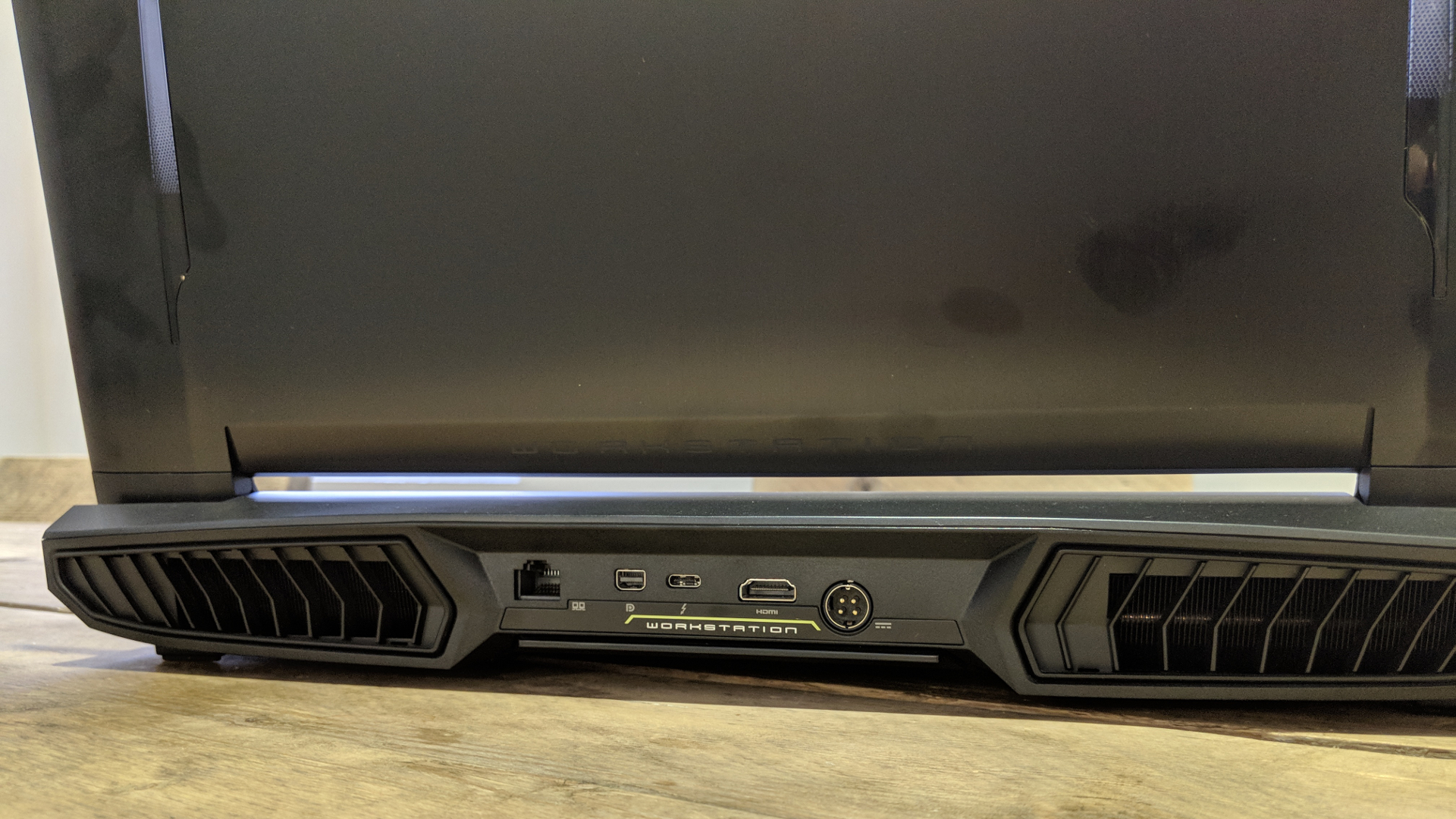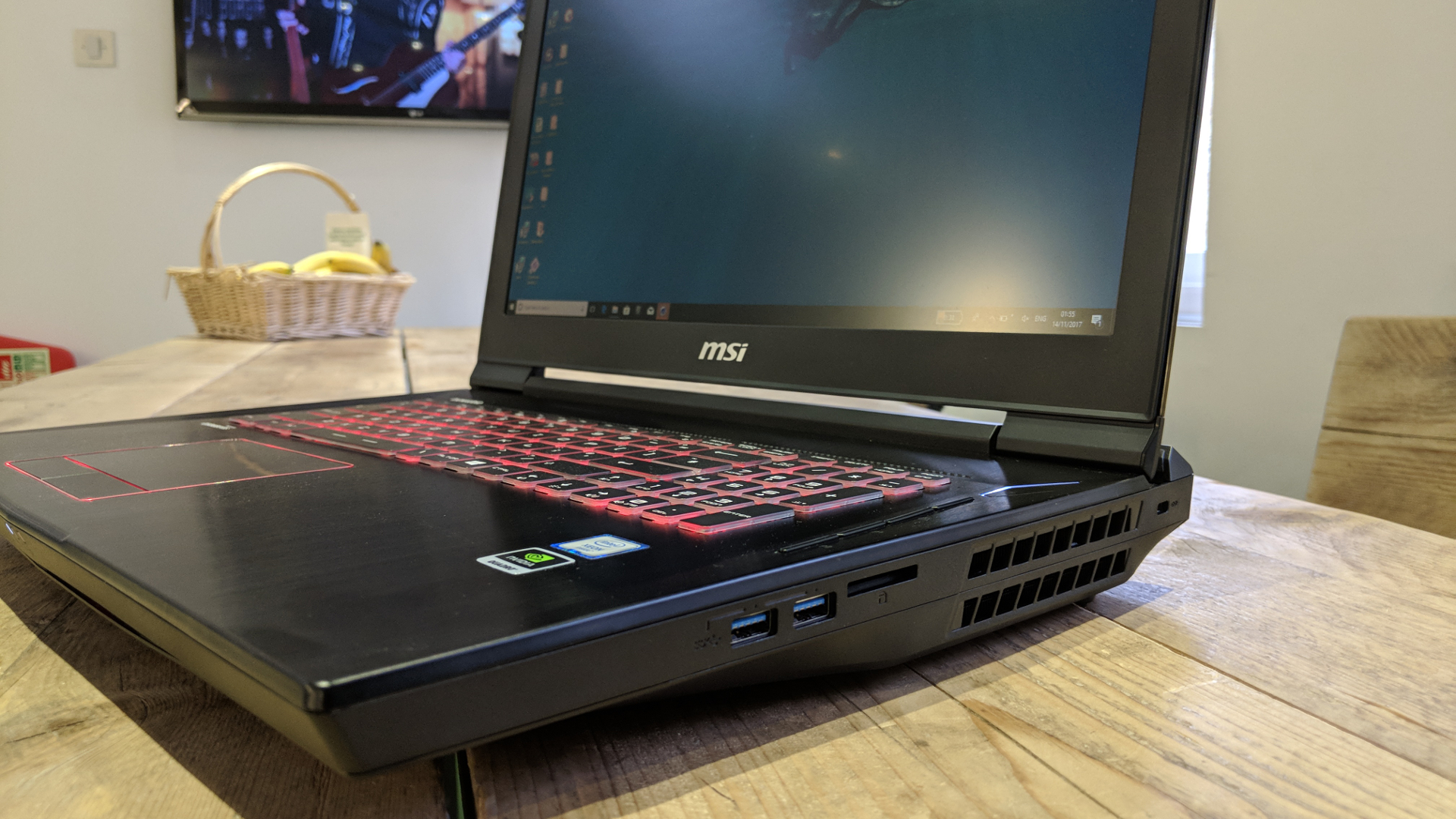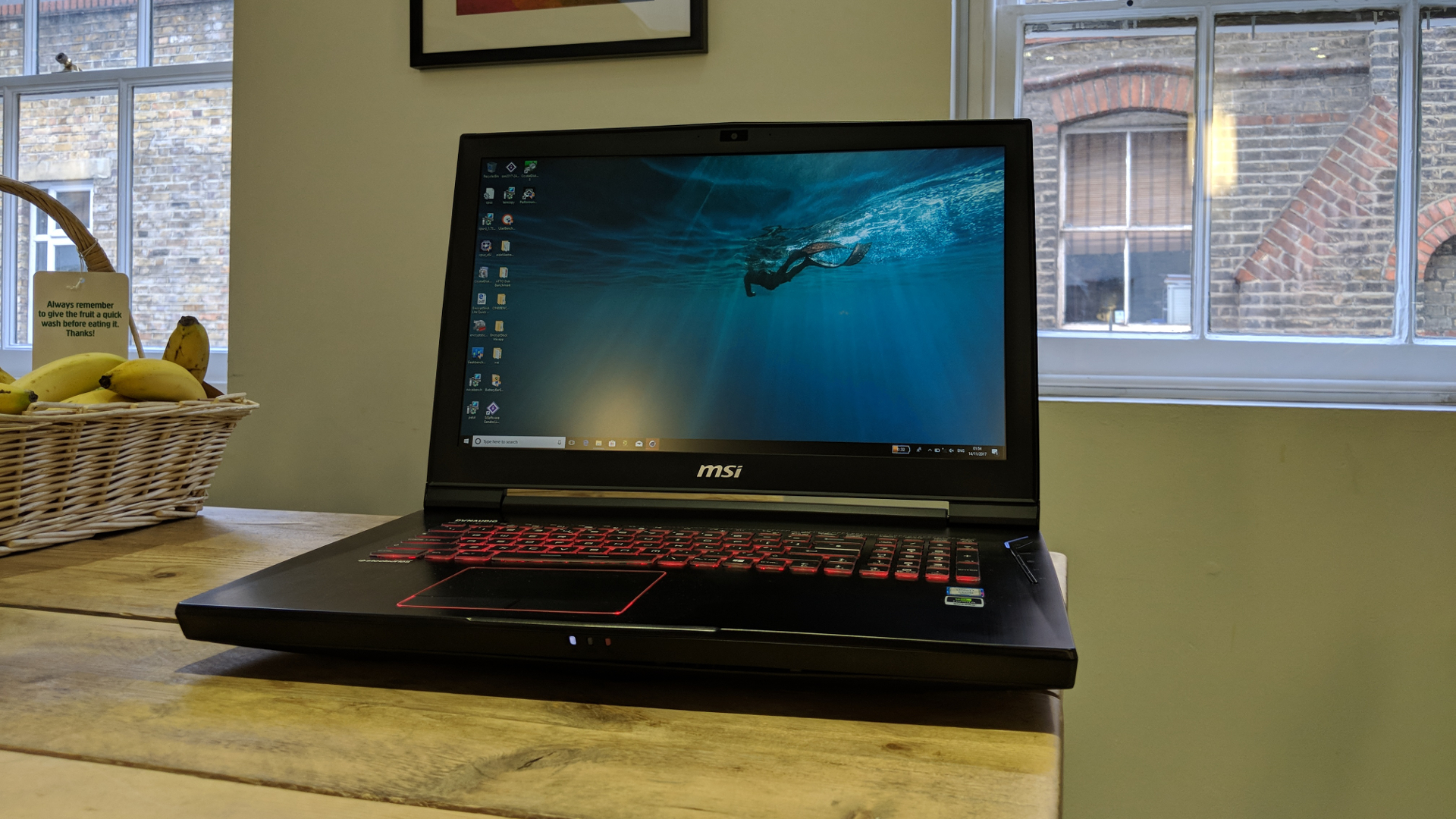TechRadar Verdict
This is a great laptop if you’re something of a gamer and want to use a powerful portable for that purpose, as well as working on other (more serious) tasks that demand a serious amount of compute resources. Otherwise, MSI’s offering is unlikely to appeal.
Pros
- +
ISV certification
- +
Powerful performance levels
Cons
- -
Short charging cable
- -
No vPro
- -
No SED/Opal certification
Why you can trust TechRadar
Earlier this year, TechRadar reviewed the MSI GT73VR Titan Pro, a gaming laptop that our colleague Parker Wilhelm described as cramming “top-of-the-line tech and a gorgeous 120Hz display into one sleek design – but top-tier power demands an equally top-tier price tag”.
The Taiwanese company, which has mastered the ability to reuse a chassis for dual purposes, swapped the GPU and the CPU to deliver a workstation version called the WT73VR. Note that it is a very different beast to the WS63, its more svelte but far less powerful little brother.

Design
The WT73VR is the antithesis of the WS63. Whereas the latter managed to produce an eye-pleasing device that weighs under 2kg with some obvious shortcomings, the former is more of an attempt to deliver the absolute best performance in a barely portable format.

Yes, the WT73VR is an absolute monster, a behemoth that weighs more than 5kg when you include the brick-like charger (and yes, you will need it more than you think). Its dimensions – 428 x 287 x 24-49mm – and weight are very similar to that of an A3 ream of paper. If you have one in your office, put it on your lap to get an idea of this notebook’s heft.

Since it uses the same chassis as the GT73VR, the rest of the analysis from TechRadar’s earlier review regarding its design still holds, although we’d thoroughly disagree about its “top-shelf luxury electronics” appearance. It offers nothing like the clean lines of the MacBook Pro or even the WS63.

Brash, industrial and utilitarian is how we’d describe the aesthetics of the WT73VR; it looks as if the laptop could turn into a Transformer robot at any moment. Its rear is designed to look like a sports car, and its belly has so many holes to facilitate air circulation that the base probably consists more of air than plastic. Not that this is a bad thing, just bear this in mind if you plan to use the machine on your lap – this thing can get very hot.

Here is the MSI WT73VR 7RM configuration sent to TechRadar Pro for review:
CPU: Intel Xeon E3-1505M v6 quad-core 3GHz
Graphics: Nvidia Quadro P5000; Intel HD Graphics P630
RAM: 32GB DDR4 ECC
Screen: 17.3-inch 1920 x 1080 resolution
Storage: 2x 128GB SSDs in RAID-0, 1TB hard drive
Ports: 5 x USB Type-A, 1 x USB Type-C, 1 x HDMI, 4 x audio, 1 x mini-DisplayPort, 1x GbE LAN port, card reader
Connectivity: 802.11ac Wi-Fi, Bluetooth 4.2
Camera: 1080p front webcam
Weight: 4.14kg
Size: 428 x 287 x 24-49mm (W x D x H)
Battery: 80Whr
Specifications
The star of the show has to be the Quadro P5000 GPU, one of Nvidia’s fastest workstation chips, superseded only by the more powerful and far more expensive GP100 and P6000. The P5000 is the fastest professional mobile solution currently available and MSI paired it with 16GB of GDDR5X memory.
Sign up to the TechRadar Pro newsletter to get all the top news, opinion, features and guidance your business needs to succeed!
Given that the desktop version costs £1,799 ($2,375) and has a power consumption of 180W, it is safe to assume that this mobile GPU has a fair share of the power budget and the bill of materials.
The other component worth mentioning is the Intel Xeon processor. This Kaby Lake part integrates a graphics subsystem, a rarity on a Xeon part. It has a relatively high TDP for a mobile CPU but is priced competitively compared to the Core i7-7820HK or the 7820HQ.
We didn’t partake in any overclocking but the options are definitely available via MSI’s array of software.
MSI engineers also chose to keep the same 17.3-inch Full HD resolution 120Hz display as seen in the GT73VR. The memory is ECC but there are no RAID options, just a single SSD and a hard drive that doubles as secondary storage.

As for connectivity, the vast amount of space available means that there are plenty of options: a Killer GbE LAN port, 802.11ac Wi-Fi, Bluetooth 4.2, Mic-in, Headphone-out (SPDIF), Line-in, Line-out, six USB ports (one Type-C), one HDMI port, one mini-DisplayPort and a card reader.

Désiré has been musing and writing about technology during a career spanning four decades. He dabbled in website builders and web hosting when DHTML and frames were in vogue and started narrating about the impact of technology on society just before the start of the Y2K hysteria at the turn of the last millennium.
